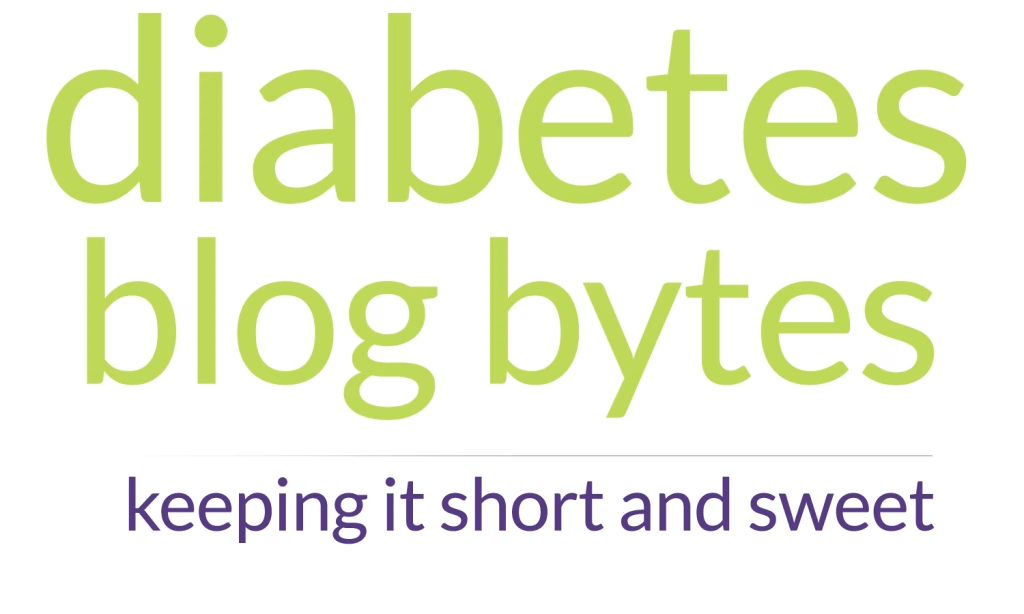
In May 2023, the FDA approved the Beta Bionics iLet Bionic Pancreas insulin pump for individuals 6 years and older. This is the first automated insulin delivery (AID) system to eliminate the need to enter carbohydrate (carb) counts for meals or snacks.
With over 1 million people worldwide utilizing insulin pump therapy, removing the intricate skill of carb counting has grabbed the attention of the diabetes community.¹
Diabetes is a disease that can be overwhelming, causing a substantial risk of distress and burnout. As a diabetes health care professionals, you help individuals living with diabetes choose technology to enhance their self-management and reduce some of the associated burdens.
Key Features
The iLet Bionic Pancreas is a continuous subcutaneous insulin infusion (CSII) system, also commonly referred to as an insulin pump. Like other tubed insulin pumps on the market, it features a small cartridge that holds insulin, an operating system that delivers the insulin, integration with a continuous glucose monitor (CGM), and is connected to the body via tubing with an insertion set.
CGM compatibility includes:
☑️ Dexcom G6
☑️ Dexcom G7
☑️ Libre 3+
The Bionic Circle app enables iLet users to invite up to 10 friends or family members to view alerts, blood glucose trends, meal announcements, and insulin doses. Healthcare providers utilize the Healthcare Provider Bionic Portal to download iLet data for review during office visits or for remote patient monitoring.
But How Is iLet Different?
The most significant difference with the iLet is that there are NO traditional pump settings. The only initial settings used are the individual’s weight and target range. Because there are no traditional settings, there is no user input for corrections or carb counting.
Three different algorithms drive insulin delivery. Let’s look at each algorithm²:
Basal Algorithm
- The original basal profile is developed based on the individual’s weight; however, over time, the system continually adapts the basal profile using continuous glucose monitor (CGM) data.
Corrections Algorithm
- Based on CGM data, the algorithm adds additional insulin beyond the basal requirements every 5 minutes, aiming to maintain blood glucose within the predetermined target rang.
Meal Announcement Algorithm
- When the individual announces a meal, the system customizes the insulin delivery based on dosing history for similar-sized meals.
- It determines and adapts meal types separately (breakfast, lunch, or dinner). Initially, the meal dose is calculated, just like the basal rate, and then postprandial corrections are applied if necessary. Based on this data, the system will continuously adapt to individualize the insulin needs based on the size of meals.
- The only decisions made at meal announcements are:
- Choosing the meal: breakfast, lunch, or dinner
- Choosing the size of the meal: If the meal is the usual amount of carbs, smaller, or larger
The only adjustable setting is the glucose target range. There are three different glucose targets to choose from. Two different blood glucose targets can be set within a 24-hour period.³
- 🩸Higher (130 mg/dL)
- 🩸Usual (120 mg/dL)
- 🩸Lower (110 mg/dL)
The Educator’s Perspective
When using the iLet there are a few crucial points to consider:
🥖 Carbohydrate education is not gone! Although no carb counting is required, clients must be aware of carbs. They will still need a basic understanding of which foods contain carbs to accurately determine the size of the meal.
📲 There are no traditional pump settings to manage. The only setting that can be changed is the target range. Education is key for clients who would self-adjust pump settings with previous insulin pumps.
🏃♂️ Managing exercise has changed. There is no exercise mode, activity mode, or temp basal setting to adjust insulin delivery for physical activity. Please see tips from Beta Bionics on managing physical activity with the iLet at https://www.betabionics.com/articles/exercise/.
As a diabetes healthcare professional, you support individuals living with diabetes in setting personalized goals and developing tailored treatment plans. After assessing the client’s needs and barriers, you may find that they are overwhelmed or distressed by the constant need for carb counting. You may also find those who prefer to be ‘hands-off’ with their diabetes for many reasons. These individuals may find that an AID system like the iLet can improve glycemic control without increasing treatment burden.
If you’re looking for more information on diabetes technology or identifying barriers to self-management, join our 2-Day Training Seminar in San Diego to help those living with diabetes continue to thrive.
References
Association of Diabetes Care and Education Specialists. (n.d.). The DCES and pump therapy. Danatech Diabetes Technology. https://www.adces.org/education/danatech/insulin-pumps/pumps-in-professional-practice/dces’s-and-pump-therapy
Beta Bionics. (n.d.). HCP webinars. https://www.betabionics.com/hcp/hcp-webinars/
- Beta Bionics (n.d.). Healthcare provider resources. https://www.betabionics.com/hcp/hcp-resources/
Live in San Diego
DiabetesEd Training Seminar
30+ CEs with Expanded Accreditation!


Join our expert team for engaging, interactive sessions that bring the ADA Standards of Care to life—covering medications, behavior change, technology, and more. Ideal for CDCES or BC-ADM exam prep, this course also includes a 4-hour Virtual Medical Nutrition Therapy Toolkit and bonus content that also meets CDCES renewal requirements. See Training Schedule Here >>
Program Objectives:
Upon completion of this activity, participants should be able to:
- Describe the current ADA Standards for diagnosis, goals, and person-centered diabetes management across the lifespan.
- Demonstrate insulin pattern management and dosing strategies in clinical scenarios.
- Implement timely screening and risk reduction strategies for microvascular and cardiovascular complications.
- Incorporate behavior change techniques and medical nutrition therapy to support people with diabetes self-management and lifestyle adjustment.
Expert Faculty:

Diana Isaacs, PharmD, BCPS, BCACP, CDCES, BC-ADM, FADCES, FCCPCES

Beverly Thomassian, RN, MPH, CDCES, BC-ADM
Faculty Bios & Disclosures
Our expert team transforms complex diabetes science into clear, practical insights—keeping it real, engaging, and fun!
Program Faculty Disclosures:
Partners for Advancing Clinical Education (Partners) requires every individual in a position to control educational content to disclose all financial relationships with ineligible companies that have occurred within the past 24 months. Ineligible companies are organizations whose primary business is producing, marketing, selling, re-selling, or distributing healthcare products used by or on patients.
All relevant financial relationships for anyone with the ability to control the content of this educational activity are listed below and have been mitigated according to Partners policies. Others involved in the planning of this activity have no relevant financial relationships.
Faculy Bios & Disclosures:
 Coach Beverly Thomassian RN, MPH, CDCES, BC-ADM – CEO of DiabetesEd Services
Coach Beverly Thomassian RN, MPH, CDCES, BC-ADM – CEO of DiabetesEd ServicesDisclosures:
Beverly Thomassian has no financial disclosures
Bio:
 Diana Isaacs, PharmD, BCPS, BCACP, CDCES, BC-ADM, FADCES, FCCPCES
Diana Isaacs, PharmD, BCPS, BCACP, CDCES, BC-ADM, FADCES, FCCPCES
Disclosures:
Dr. Diana Isaacs has the following relevant financial relationships:
- Consultant, advisor, and speaker for Abbot Labratories, Dexcom, Medtronic, Insulet, Lilly, Cequr, Sanofi, and Undermyfork
- Board member at Association for Diabetes Care and Education Specialists
Bio:
Diana Isaacs was awarded 2020 ADCES Diabetes Educator of the Year for her educational platform promoting the use of CGM for people with diabetes and other innovations. She serves in leadership roles for several pharmacies and diabetes organizations. She has numerous diabetes publications and research projects with a focus on medications, CGM and diabetes technology.
For the past three year, Dr. Isaacs has served as a contributing author for the 2023 ADA Standards of Care.
As the Program Coordinator and clinical pharmacist specialist in the Cleveland Clinic Diabetes Center, Dr. Isaacs brings a wealth of clinical knowledge combined with extensive research and speaking experience to this program.
Expanded Accreditation
Activity Start and End Date: 10/22/25 – 10/23/2025
Estimated time to complete the activity: 15 hours and 30 minutes
_____________________________________
Jointly provided by Partners for Advancing Clinical Education and Diabetes Education Services
![]()
![]()
Joint Accreditation Statement:
 In support of improving patient care, this activity has been planned and implemented by Partners for Advancing Clinical Education (Partners) and Diabetes Education Services. Partners is jointly accredited by the Accreditation Council for Continuing Medical Education (ACCME), the Accreditation Council for Pharmacy Education (ACPE), and the American Nurses Credentialing Center (ANCC), to provide continuing education for the healthcare team.
In support of improving patient care, this activity has been planned and implemented by Partners for Advancing Clinical Education (Partners) and Diabetes Education Services. Partners is jointly accredited by the Accreditation Council for Continuing Medical Education (ACCME), the Accreditation Council for Pharmacy Education (ACPE), and the American Nurses Credentialing Center (ANCC), to provide continuing education for the healthcare team.
Physician Continuing Education:
Partners designates this enduring material for a maximum of 15.50 AMA PRA Category 1 Credit(s)™. Physicians should claim only the credit commensurate with the extent of their participation in the activity.
Nursing Continuing Professional Development:
The maximum number of hours awarded for this Nursing Continuing Professional Development activity is 15.50 contact hours.
Pharmacy Continuing Education:
Partners designates this continuing education activity for 15.50 contact hour(s) (1.550 CEUs) of the Accreditation Council for Pharmacy Education.
(Universal Activity Number – JA4008073-9999-25-206-L01-P)
Type of Activity: Application
For Pharmacists: Upon successfully completing the activity evaluation form, transcript information will be sent to the NABP CPE Monitor Service within 4 weeks.
Dietitian Continuing Education:
This program offers 15.50 CPEUs for dietitians.
Interprofessional Continuing Education:
![]() This activity was planned by and for the healthcare team, and learners will receive 15.50 Interprofessional Continuing Education (IPCE) credit for learning and change.
This activity was planned by and for the healthcare team, and learners will receive 15.50 Interprofessional Continuing Education (IPCE) credit for learning and change.
For additional information about the accreditation of this activity, please visit https://partnersed.com.
The use of DES products does not guarantee the successful passage of the certification exam. CBDCE and ADCES do not endorse any preparatory or review materials for the CDCES or BC-ADM exams, except for those published by CBDCE & ADCES.




